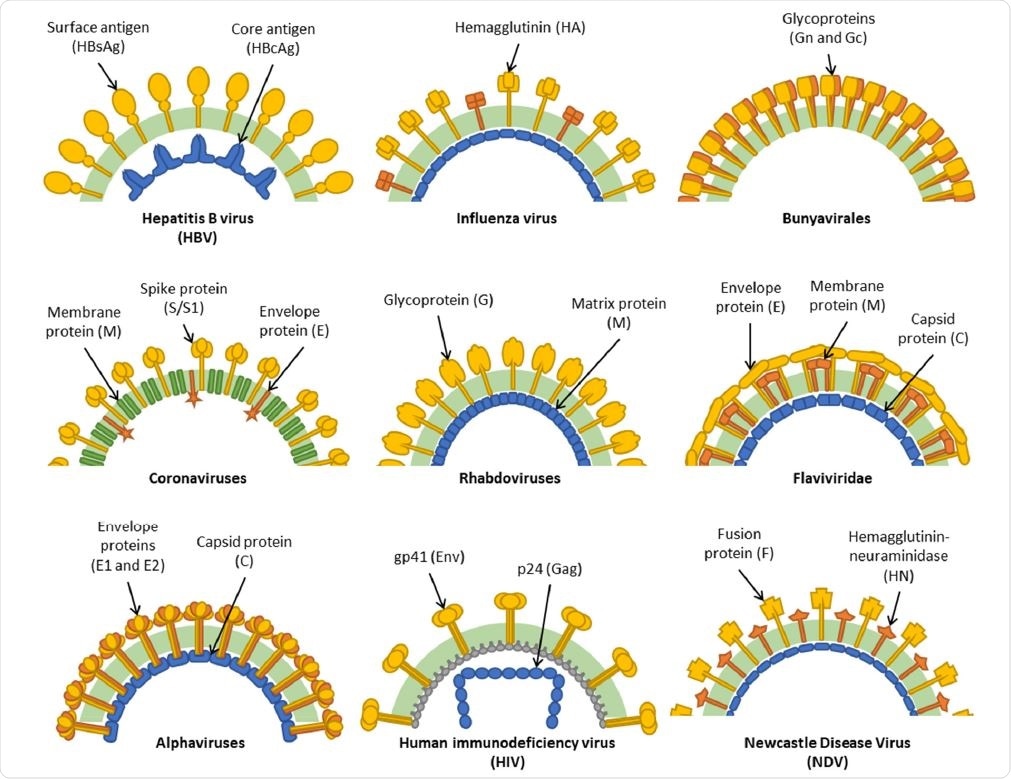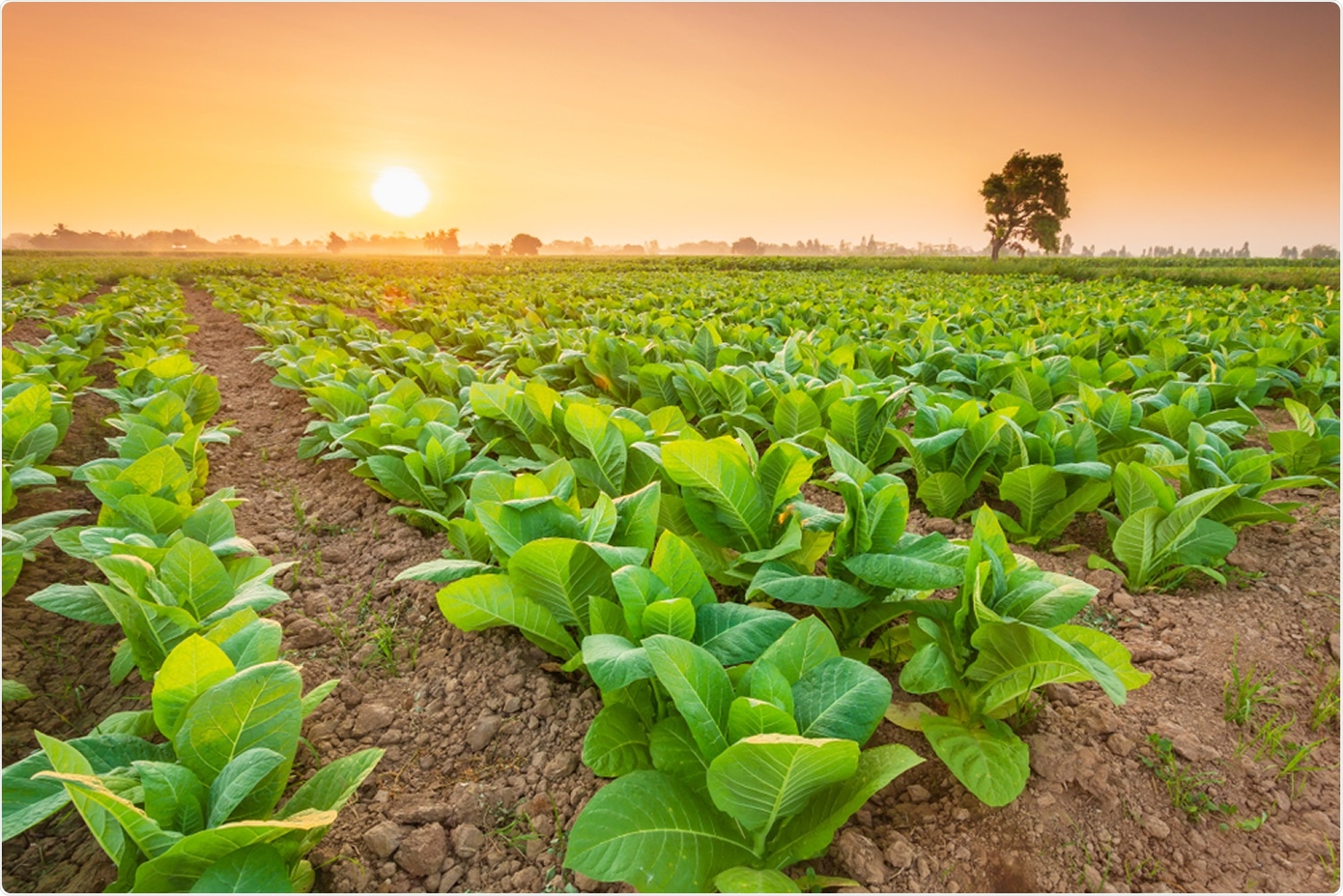Over the past decades, scientists explored plant molecular farming as a way to produce recombinant proteins for pharmaceutical and biotechnological applications. The effort has focused on producing vaccine candidates against viral diseases, including those caused by enveloped viruses.
The study by researchers at the John Innes Centre, England, aims to shed light on VLPs and how they can be utilized in the search for effective candidate vaccines against viruses.
What are VLPs?
Virus-like particles (VLPs) have been produced as candidate vaccines in plants. Today, VLPs are the best candidates for safe, immunogenic, effective, and affordable vaccines. Plant-derived antibodies, vaccines, and microbicides have gained significant attention and shown immense promise.
Self-assembling macromolecules, like VLPs, have been used as one of the most effective ways to induce an immune response in recipients. Hence, many recombinant vaccines and vaccine candidates are based on VLPs, consisting of either a common scaffold where antigenic sequences are displayed or in viruses, non-infectious VLPs of the parental virus itself.
Plants provide advantages for the development of vaccines due to high yields and low costs. Also, they can be administered orally and are very unlikely to be contaminated with an adventitious mammalian pathogen.
The review
The review aims to focus on efforts to produce vaccine candidates against enveloped viruses in plants, particularly on VLPs.
In creating VLPs of enveloped viruses in plants, there are two approaches required. First, identify the virus-derived proteins that self-assemble inside infected cells and express the proteins either through stable transgenesis. After which, the VLP production relies on the proteins’ ability to interact with plant membranes.
The second approach involves the use of a preformed scaffold to exhibit antigenic sequences from enveloped viruses to produce virus-specific VLPs. The most popular scaffolds are particles from plant viruses, including the cowpea mosaic virus (CPMV), tobacco mosaic virus (TMV), tomato bushy stunt virus (TBSV), potato virus X (PVX), and the cucumber mosaic virus (CMV).
Particles from viruses are also used as scaffolds for antigen display in plants, such as the hepatitis B virus (HBV) core antigen (HBcAg) produced in plants. In addition, non-viral molecules like flagellin are also used to present the M2e epitope from the influenza virus.

Diagrams depicting the major structural elements of the virus clades are described in this review. Background dark green band represents the lipid envelope, and other elements represent viral structural proteins. Blue represents capsid proteins while yellow/orange represents membrane-bound surface glycoproteins.
VLPs of enveloped viruses
The first VLP of an enveloped virus to be produced in plants contains the surface antigen of HBC (HBsAg). This protein interacts with phospholipids from host cell membranes to form both viral and subviral particles during HBV infection. Furthermore, scientists found that HBsAg assembles into structures mimicking subviral particles even if only low levels accumulate in the leaves of transgenic tobacco plants.
HBV has also been created in various edible plants such as bananas, tomatoes, lettuce, lupin, and potatoes. It has been effective at triggering an immune response against HBV when given orally to mice and humans. HBsAg made in transgenic potato tubers was cross-linked by disulfide bonds and formed tubular structures.
HBsAg has been dubbed as one of the great success stories of molecular farming of enveloped viruses. Apart from HBsAg, HBV core antigen particles (HBcAg) have also been produced in plants.
Most studies on plant-produced antigens of influenza virus and VLPs came after the success with HBsAg. Even if the expression has primarily been achieved via transient expression in tobacco leaves, immunogenic haemagglutinin (HA) expression in tobacco seeds showed promise. Influenza nucleoprotein has also been expressed in maize seeds.

Tobacco plants. Image Credit: Piyawat Nandeenopparit / Shutterstock
Further, two phases 3 trials showed that plant-based HA VLPs protect against respiratory illness and influenza-like illness caused by influenza viruses in adults. Currently, the vaccine is being reviewed by public health experts across the globe.
The current coronavirus disease (COVID-19) pandemic has urged the scientific community to find an effective vaccine against the severe acute respiratory syndrome coronavirus 2 (SARS-CoV-2). As a result, the plant molecular farming community has mobilized to develop plant-produced subunit vaccine candidate protein.
Medicago used its experience with influenza VLPs to produce a VLP vaccine candidate against SARS-CoV-2. Other groups work on VLPs that can combat the current global health crisis.
The other VLPs used in various studies include those targeting rhabdoviruses, Flaviviridae, alphaviruses, the human immunodeficiency virus (HIV), Newcastle disease virus, and other viruses families.
Overall, the past three decades have seen the development of plant-based produced vaccine candidates against enveloped viruses.
“This suggests that VLPs tend to make the most promising vaccine candidates against enveloped viruses, but it could also be an indication that clinical development requires development by a well-funded private company such as Medicago, which is responsible for clinical development of both influenza and SARS-CoV-2 VLPs,” the researchers noted in the study.
The long-term interaction and partnership between scientists of plant molecular farming and the growing industry are crucial to attaining the success of plant-produced vaccines.